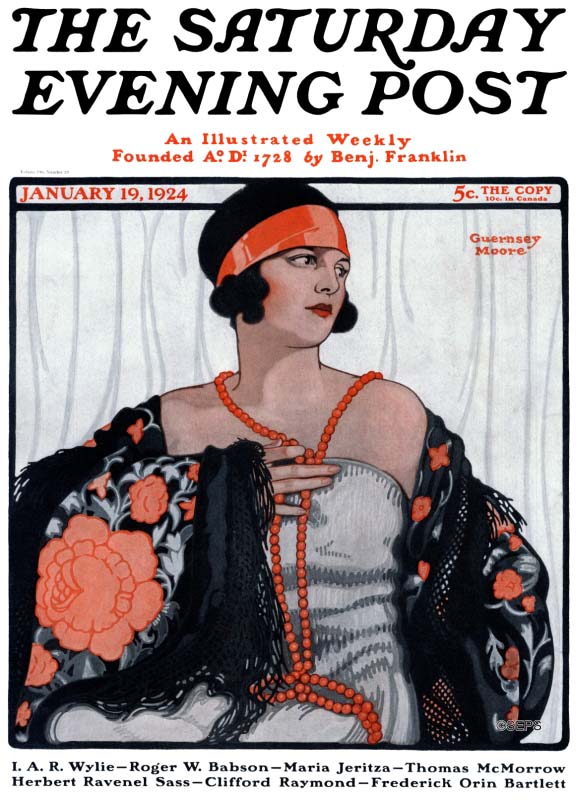|
Jim Burwell
James M. Burwell (March 23, 1898 – September 8, 1974), also known as Jim B., was an American man who was one of Alcoholics Anonymous (AA) founding members. He was among the first ten members of AA on the East Coast, and was responsible for starting Alcoholics Anonymous in Philadelphia and Baltimore. Later in life, he and Rosa, his wife, moved to San Diego, California and were instrumental in the growth of AA there. His most crucial contribution at the founding of AA came from his atheism—or as he later termed it, his "militant agnosticism". He argued strongly with the early group in New York that it needed to tone down what he called the "God bit". This resulted in the much more inclusive " Higher Power" and "God as we understand Him" concepts that are now so closely associated with Alcoholics Anonymous. Although after a relapse, Burwell came to accept the spiritual aspects of Alcoholics Anonymous. "My brilliant agnosticism vanished, and I saw for the first time that those ... [...More Info...] [...Related Items...] OR: [Wikipedia] [Google] [Baidu] |
Alcoholics Anonymous
Alcoholics Anonymous (AA) is a global, peer-led Mutual aid, mutual-aid fellowship focused on an abstinence-based recovery model from alcoholism through its spiritually inclined twelve-step program. AA's Twelve Traditions, besides emphasizing anonymity, stress lack of hierarchy, staying non-promotional, and non-professional, while also unaffiliated, non-denominational, apolitical and free to all. , AA estimated it is active in 180 countries with an estimated membership of nearly two million—73% in the United States and Canada. AA traces its origins to a 1935 meeting between Bill W., Bill Wilson (commonly referred to as Bill W.) and Dr. Bob Smith (doctor), Bob Smith (Dr. Bob), two individuals seeking to address their shared struggles with alcoholism. Their collaboration, influenced by the Christian Revivalism, Christian revivalist Oxford Group, evolved into a mutual support group that eventually became AA. In 1939, the fellowship published The Big Book (Alcoholics Anonymous), ''Al ... [...More Info...] [...Related Items...] OR: [Wikipedia] [Google] [Baidu] |
James Burwell Grave
James may refer to: People * James (given name) * James (surname) * James (musician), aka Faruq Mahfuz Anam James, (born 1964), Bollywood musician * James, brother of Jesus * King James (other), various kings named James * Prince James (other) * Saint James (other) Places Canada * James Bay, a large body of water * James, Ontario United Kingdom * James College, a college of the University of York United States * James, Georgia, an unincorporated community * James, Iowa, an unincorporated community * James City, North Carolina * James City County, Virginia ** James City (Virginia Company) ** James City Shire * James City, Pennsylvania * St. James City, Florida Film and television * ''James'' (2005 film), a Bollywood film * ''James'' (2008 film), an Irish short film * ''James'' (2022 film), an Indian Kannada-language film * "James", a television episode of ''Adventure Time'' Music * James (band), a band from Manchester ** ''James'', US title of ... [...More Info...] [...Related Items...] OR: [Wikipedia] [Google] [Baidu] |
Atheism
Atheism, in the broadest sense, is an absence of belief in the Existence of God, existence of Deity, deities. Less broadly, atheism is a rejection of the belief that any deities exist. In an even narrower sense, atheism is specifically the position that there no deities. Atheism is contrasted with theism, which is the belief that at least one deity exists. Historically, evidence of atheistic viewpoints can be traced back to classical antiquity and Nāstika, early Indian philosophy. In the Western world, atheism declined after Christianity gained prominence. The 16th century and the Age of Enlightenment marked the resurgence of atheistic thought in Europe. Atheism achieved a significant position worldwide in the 20th century. Estimates of those who have an absence of belief in a god range from 500 million to 1.1 billion people. Atheist organizations have defended the autonomy of science, freedom of thought, secularism, and secular ethics. Arguments for atheism range from p ... [...More Info...] [...Related Items...] OR: [Wikipedia] [Google] [Baidu] |
Saturday Evening Post
''The Saturday Evening Post'' is an American magazine published six times a year. It was published weekly from 1897 until 1963, and then every other week until 1969. From the 1920s to the 1960s, it was one of the most widely circulated and influential magazines among the American middle class, with fiction, non-fiction, cartoons and features that reached two million homes every week. In the 1960s, the magazine's readership began to decline. In 1969, ''The Saturday Evening Post'' folded for two years before being revived as a quarterly publication with an emphasis on medical articles in 1971. As of the late 2000s, ''The Saturday Evening Post'' is published six times a year by the Saturday Evening Post Society, which purchased the magazine in 1982. The magazine was redesigned in 2013. History 19th century ''The Saturday Evening Post'' was first published in 1821 in the same printing shop at 53 Market Street (Philadelphia), Market Street in Philadelphia, where the Benjamin Frankl ... [...More Info...] [...Related Items...] OR: [Wikipedia] [Google] [Baidu] |
Bill W
William Griffith Wilson (November 26, 1895 – January 24, 1971), also known as Bill Wilson or Bill W., was the co-founder of Alcoholics Anonymous (AA) with Bob Smith. AA is an international mutual aid fellowship with about two million members worldwide belonging to AA groups, associations, organizations, cooperatives, and fellowships of alcoholics helping other alcoholics achieve and maintain sobriety. Following AA's Twelfth Tradition of anonymity, Wilson is commonly known as "Bill W." or "Bill". To identify each other, members of AA will sometimes ask others if they are "friends of Bill". After Wilson's death, and amidst controversy within the fellowship, his full name was included in obituaries by journalists who were unaware of the significance of maintaining anonymity within the organization. Wilson's sobriety from alcohol, which he maintained until his death, began December 11, 1934. In 1955, Wilson turned over control of AA to a board of trustees. Wilson died in 1971 ... [...More Info...] [...Related Items...] OR: [Wikipedia] [Google] [Baidu] |
Owensville, Maryland
Owensville is an unincorporated community in Anne Arundel County, Maryland Maryland ( ) is a U.S. state, state in the Mid-Atlantic (United States), Mid-Atlantic region of the United States. It borders the states of Virginia to its south, West Virginia to its west, Pennsylvania to its north, and Delaware to its east ..., United States. References Unincorporated communities in Anne Arundel County, Maryland Unincorporated communities in Maryland {{AnneArundelCountyMD-geo-stub ... [...More Info...] [...Related Items...] OR: [Wikipedia] [Google] [Baidu] |
Twelve-step Program
Twelve-step programs are international mutual aid programs supporting recovery from substance addictions, behavioral addictions and compulsions. Developed in the 1930s, the first twelve-step program, Alcoholics Anonymous (AA), founded by Bill Wilson and Bob Smith, aided its membership to overcome alcoholism. Since that time dozens of other organizations have been derived from AA's approach to address problems as varied as drug addiction, compulsive gambling, sex, and overeating. All twelve-step programs utilize a version of AA's suggested twelve steps first published in the 1939 book '' Alcoholics Anonymous: The Story of How More Than One Hundred Men Have Recovered from Alcoholism.'' As summarized by the American Psychological Association (APA), the process involves the following: * admitting that one cannot control one's alcoholism, addiction, or compulsion; * coming to believe in a Higher Power that can give strength; * examining past errors with the help of a sp ... [...More Info...] [...Related Items...] OR: [Wikipedia] [Google] [Baidu] |
Twelve Traditions
The Twelve Traditions of twelve-step programs provide guidelines for relationships between the twelve-step groups, members, other groups, the global fellowship, and society at large. Questions of finance, public relations, donations, and purpose are addressed in the traditions. They were originally written by Bill Wilson after the founding of the first twelve-step group, Alcoholics Anonymous (AA). Origins Several of the tenets of what was to become AA's Twelve Traditions were first expressed in the foreword to the first edition of the Big Book of Alcoholics Anonymous in 1939. By 1944 the number of AA groups had grown, along with the number of letters being sent to the AA headquarters in New York asking how to handle disputes caused by issues like publicity, religion, and finances. By 1946 AA cofounder Bill Wilson had formulated the basic ideas for the Twelve Traditions based on this correspondence with groups (via the group conscience method), setting guidelines on how groups and ... [...More Info...] [...Related Items...] OR: [Wikipedia] [Google] [Baidu] |
Alcoholism
Alcoholism is the continued drinking of alcohol despite it causing problems. Some definitions require evidence of dependence and withdrawal. Problematic use of alcohol has been mentioned in the earliest historical records. The World Health Organization (WHO) estimated there were 283 million people with alcohol use disorders worldwide . The term ''alcoholism'' was first coined in 1852, but ''alcoholism'' and ''alcoholic'' are considered stigmatizing and likely to discourage seeking treatment, so diagnostic terms such as ''alcohol use disorder'' and ''alcohol dependence'' are often used instead in a clinical context. Alcohol is addictive, and heavy long-term alcohol use results in many negative health and social consequences. It can damage all the organ systems, but especially affects the brain, heart, liver, pancreas, and immune system. Heavy alcohol usage can result in trouble sleeping, and severe cognitive issues like dementia, brain damage, or Wernicke–Kors ... [...More Info...] [...Related Items...] OR: [Wikipedia] [Google] [Baidu] |
Substance Dependence
Substance dependence, also known as drug dependence, is a biopsychological situation whereby an individual's functionality is dependent on the necessitated re-consumption of a psychoactive substance because of an adaptive state that has developed within the individual from psychoactive substance consumption that results in the experience of withdrawal and that necessitates the re-consumption of the drug. A ''drug addiction'', a distinct concept from substance dependence, is defined as compulsive, out-of-control drug use, despite negative consequences. An ''addictive drug'' is a drug which is both rewarding and reinforcing. ΔFosB, a gene transcription factor, is now known to be a critical component and common factor in the development of virtually all forms of behavioral and drug addictions, but not dependence. The International Classification of Diseases classifies substance dependence as a mental and behavioural disorder. In the ''Diagnostic and Statistical Manual of ... [...More Info...] [...Related Items...] OR: [Wikipedia] [Google] [Baidu] |
William Duncan Silkworth
William Duncan Silkworth (July 22, 1873 – March 22, 1951) was an American physician and specialist in the treatment of alcoholism. He was director of the Charles B. Towns Hospital for Drug and Alcohol Addictions in New York City in the 1930s, during which time William Griffith Wilson, a future co-founder of Alcoholics Anonymous (A.A.), was admitted on four occasions for alcoholism. Dr. Silkworth had a profound influence on Wilson and encouraged him to realize that alcoholism was more than just an issue of moral weakness. He introduced Wilson to the idea that alcoholism had a pathological, disease-like basis. Early life Birthplace William Duncan Silkworth was born in Brooklyn on July 22, 1873, to parents William Silkworth and Isabelle Silkworth, ''née'' Duncan. William was the eldest of three siblings; he had a younger brother named Russel and a younger sister named Mabel. Education Silkworth attended Long Branch High School (then called Chattle High School), which was ... [...More Info...] [...Related Items...] OR: [Wikipedia] [Google] [Baidu] |


